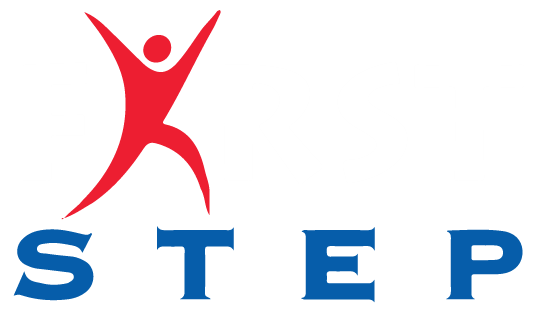When a baby shows signs of developmental delays, every moment counts. Early intervention provides infants with the support needed to build critical skills during their most important growth years. Research indicates that starting therapy early improves communication, mobility, and social development. Yet, many caregivers are unsure where to start. We’ll go over why early intervention is important, what signs to look for, and how to access life-changing support.
Key Takeaways:
- Early intervention supports infants (birth to 3 years) with developmental delays or disabilities.
- Additionally, services include therapy, caregiver training, and developmental activities meant to address each child’s specific needs.
- For instance, developmental delays may involve lack of head control, no babbling, or poor eye contact by expected milestones.
- Furthermore, parents can contact their state’s early intervention program directly for a free evaluation; no doctor’s referral is required.
- During evaluations, specialists assess movement, speech, and social skills; results determine eligibility for services.
- Consequently, therapies include speech, occupational, and physical therapy, with parent participation playing a key role in progress.
- Moreover, the Individualized Family Service Plan (IFSP) outlines goals and guides appropriate interventions.
- Finally, it is important to note that most early intervention services are free, funded through IDEA, Medicaid, and private insurance.
- Overall, early support promotes cognitive, social, and motor skill development, reducing learning challenges later on.

Early Intervention For Infants
Early intervention helps babies and toddlers with developmental delays or disabilities by providing support to improve movement, communication, problem-solving, and social interaction. Specifically, these services focus on children from birth to age three, offering them the best opportunity to grow and learn.
Moreover, programs include therapy, caregiver training, and developmental activities. Specialists collaborate with families to build skills in everyday settings. Since each child has unique challenges and strengths, we structure services to meet individual needs.
Early action matters because a baby’s brain develops quickly in the first few years. The skills developed during this time lay the foundation for future achievements. Early developmental support leads to better outcomes in school, relationships, and daily life.
Children who receive help early often require fewer services later. Without support, delays may become more challenging, making it harder to catch up. Early intervention helps reduce learning gaps and builds confidence in both children and caregivers.
If you're concerned about your child’s development, seeking assistance early is key. Early childhood intervention programs provide valuable resources to help children reach important milestones.
The Signs of Developmental Delays in Infants
Every baby grows at their own pace, but hitting key milestones on time is important. Parents and caregivers should monitor infant development milestones. By three months, babies should lift their heads, smile, and respond to loud sounds. Additionally, by six months, they should roll over, babble, and reach for objects. Furthermore, at one year, most can crawl, stand, and say simple words.
However, if a baby struggles with these skills, it may indicate a developmental delay. Warning signs include lack of smiling, difficulty holding their head up, or limited hand movement by three months. Moreover, by six months, concerns may include poor eye contact or a lack of interest in sounds. Finally, after a year, delays might involve not standing with support or not making any sounds.
Doctors assess these areas during an early intervention assessment, which evaluates movement, speech, and interaction. Detecting delays early leads to better support and outcomes. A delay does not necessarily mean a disability, but early detection increases the chances of meaningful progress.
How Parents Can Access Early Intervention Services
If you are concerned about your baby’s development, help is readily available. Every state offers early intervention services for infants and toddlers with developmental delays. Importantly, no doctor's referral is necessary to begin the process.
How and Where to Seek an Early Intervention Evaluation
Parents can contact their state’s early intervention program to request a free evaluation and also determine eligibility for services.
Steps to Get a Referral for Services
- Discuss Concerns with a Pediatrician – Initially, they can provide guidance and refer families to a program.
- Call the Early Intervention Program – Subsequently, request a free evaluation.
- Work with a Service Coordinator– Then they assist with paperwork and schedule the evaluation.
- Complete the Assessment – Next, specialists observe the child's development across key areas.
- Review the Results – Finally, if eligible, an Individualized Family Service Plan (IFSP) is created.
Understanding Free and Government-Funded Programs
Federal law under Part C of the Individuals with Disabilities Education Act (IDEA) guarantees access to early intervention services in every state. Evaluations, assessments, and service coordination are free. Additionally, therapy and other support may be covered by Medicaid, insurance, or income-based programs. Importantly, inability to pay does not affect eligibility for services.
Starting early makes a difference. If delays are suspected, scheduling an evaluation as soon as possible is recommended.
If you are concerned about your baby’s development, help is available. Every state offers early intervention services for infants and toddlers with developmental delays. No doctor's referral is necessary to begin the process.
The Early Intervention Evaluation and Assessment Process
The early intervention evaluation starts with a referral. Parents, doctors, and caregivers can request an evaluation if they observe developmental concerns. Each state has a designated agency responsible for processing these requests, and a service coordinator is assigned to assist families throughout the steps.
Eligibility is based on state-defined criteria. A child may qualify due to a diagnosed condition that typically causes delays, such as Down syndrome. If there is no diagnosis but noticeable challenges in speech, motor skills, or social interaction, an assessment determines eligibility.
A team of specialists—including speech therapists, physical therapists, and developmental psychologists—performs the evaluation. They interact with the child, conduct standardized tests, and discuss concerns with the family. The goal is to identify areas where the child may need additional support.
After the evaluation, a meeting is held to review the results. If eligible, the child receives an Individualized Family Service Plan (IFSP) outlining goals and recommended services. Parents must provide written consent before services can begin.
Under IDEA Part C, families have legal rights throughout the process, and all evaluations and service planning are free. If parents disagree with the findings, they can appeal. The process of referral to plan development must be completed within 45 days to ensure timely access to services.
Types of Therapies Included in Early Intervention for Infants
Early intervention includes speech therapy, occupational therapy, and physical therapy to support infants in developing essential communication, daily living, and movement skills. Developmental treatment services address each child's individual needs.
Speech Therapy for Infants
Speech therapy helps infants who struggle with making sounds, understanding words, or forming speech. Therapists use play, singing, and gestures to encourage communication. Some children start with picture-based communication or sign language before their verbal skills develop.
Occupational Therapy for Infants
Occupational therapy focuses on improving hand control, self-feeding, and play. If a baby has trouble grasping objects or responding to textures, therapy can support fine motor skills and sensory processing.
Physical Therapy for Infants
Physical therapy helps strengthen muscles, improve posture, and support mobility. If a baby struggles with lifting their head, rolling over, or crawling, targeted exercises aid in motor development.
Parent Involvement in Therapy Sessions
Parents are a key part of therapy. Specialists teach techniques that parents can use at home to reinforce progress and provide ongoing support.
Early intervention includes speech therapy, occupational therapy, and physical therapy to support infants in developing essential communication, daily living, and movement skills. Developmental treatment services address each child's individual needs.
Individualized Family Service Plan (IFSP)
An Individualized Family Service Plan (IFSP) ensures early intervention services meet a child's unique needs. It describes current developmental levels, sets measurable goals, and outlines therapy frequency and settings.
The plan is reviewed every six months and updated annually to reflect a child’s growth and progress. Adjustments are made as needed to keep the interventions effective.
Costs and Funding
Federal, state, and private insurance programs work together to cover early intervention services. Medicaid often plays a significant role in funding. Every state provides free evaluations, and some offer income-based payment options. More financial information is available at HHS.gov.
The Long-Term Benefits of Early Intervention for Infants
Early intervention strengthens thinking, communication, and social skills, improving long-term learning and confidence. Receiving support early often reduces the need for special education later.
Families who have participated in early intervention programs frequently report meaningful improvements in their child’s development. Giving children timely support makes a lasting impact, setting the stage for future success.
Early Intervention for Infants – A Strong Start Matters
The first years of life are crucial for development. First Step Arkansas provides specialized early intervention services for infants, helping them reach key milestones with expert support. The right guidance now can shape a brighter future. Contact us to learn how we can help your child thrive.


